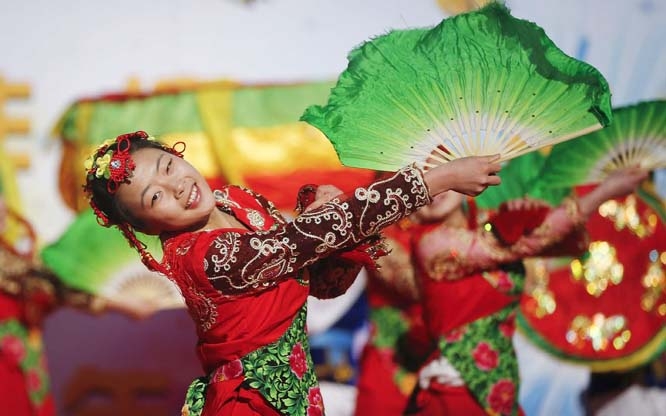
BBC Online :
Media offer New Year greetings, while discussing the challenges China faces in the year ahead.
On Lunar New Year’s Day, Chinese media outlets dwell on a plethora of unresolved problems facing the country at home and abroad in the Year of the Horse, most notably tensions with Japan.
The War of Jiawu, or the first Sino-Japanese War of 1894, and the Year of the Horse starting on 31 January 2014 are both Jiawu years in the Chinese lunar calendar. The official Xinhua news agency recalls that the first Sino-Japanese war broke out in the Jiawu year of 1894.
The Japanese navy defeated the fleet of the former Qing Dynasty (1644-1911), which was the first time that China had been vanquished by Japan in a war.
The agency also contrasts the leaders of Japan and Germany, who were both born in another Jiawu year.
“Both born in 1954, another year of ‘Jiawu’, [Japanese Prime Minister Shinzo] Abe and German Chancellor Angela Merkel represent entirely different attitudes towards their countries’ pasts. Germany has won approval from many for the sincerity its leaders have shown, but Japan still has a long way to go,” the agency says.
“In the Year of Horse, the Sino-Japanese relationship will require leaders from both sides to demonstrate wisdom and understanding,” it adds. Hong Kong’s Ming Pao warns that Japan could try to “revive” its victory from 120 years ago by escalating a territorial dispute over islands known as the Senkaku in Japan and Diaoyu in China.

